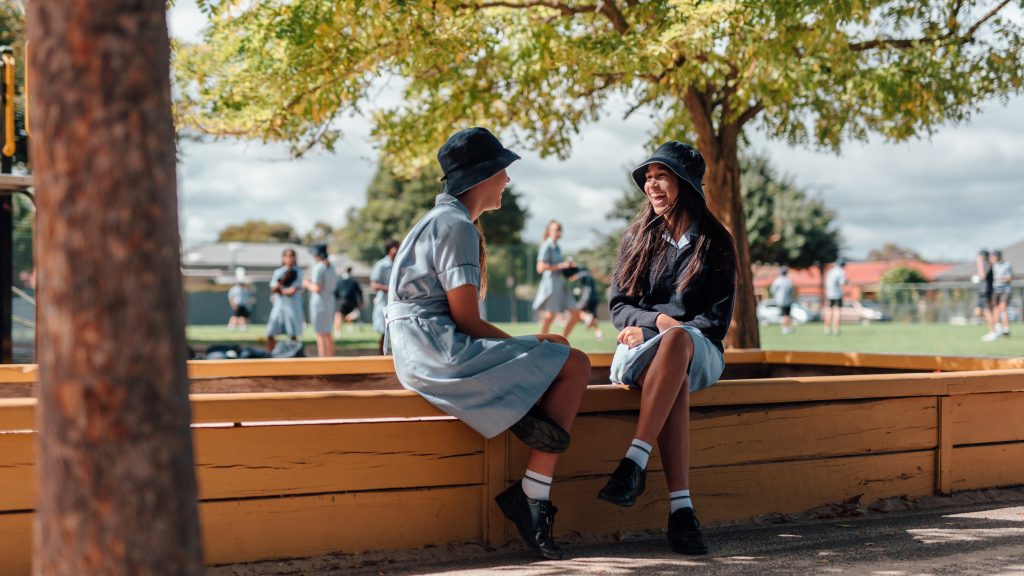Years 7 to 9 Subjects – Music
Music has the capacity to engage, inspire and enrich all students, exciting the imagination and encouraging students to reach their creative and expressive potential. Music learning also has a significant impact on the cognitive, affective, motor, social and personal competencies of students.
Students engage in sequential, developmentally appropriate activities that help them build musical understanding through listening, performing and audiating (musical thinking). Lessons are designed to support each student's individual musical potential by developing their audiation, rhythmic and tonal vocabulary, as well as confidence in musical expression, before introducing notation. This approach is based on Music Learning Theory (MLT), which aligns music learning with the natural process of learning a language.
As independent learners, students integrate listening, performing and composing activities. These activities, developed sequentially throughout Years 7 to 9, enhance their capacity to perceive and understand music. As students’ progress through studying Music, they learn to value and appreciate the power of music to transform the heart, soul, mind and spirit of the individual. In this way, students develop an aesthetic appreciation and enjoyment of music. You may read the Australian Curriculum
Year 7
All Year 7 students study Music, including elements of Performance, Song writing, Sound Production and Theory.
Students develop confidence in expressing creativity. They compose music both individually and collaboratively using either their body, voice, instrument or computer software. They improvise, respond and listen to music, focusing particularly on the six elements of music: pitch, rhythm, dynamics and expression, timbre, texture and form and structure.
Year 8 and 9
Emmaus offers two Music electives in Year 8 and 9: Music Studies and Music Production. Both pathways may be studied concurrently.
Music Studies (Full-year elective)
Students consolidate their knowledge and understanding of the elements of Music and its application in performance and composition through various learning tasks and assessment types. These include:
- Composition (Noteflight)
- Critical listening and analysis
- Ensemble rehearsal (band/choir) and skill development
- Effective practicing strategies and solo performance skill development
- Performance opportunities
Music Production (Semester elective)
Students consolidate their knowledge and understanding of the elements of Music and its application in sound production and song writing through various learning tasks and assessment types. These include:
- Explore modern song writing techniques (lyrics, melodies, chord progressions)
- Critical listening and analysis
- Use technology involved with recording and mixing music (Soundtrap and Studio One)
- Work collaboratively to create original music and explore ways to share with others
Subject considerations:
- It is compulsory for students to study Music for a full year in Year 7.
- Students in Year 8 and 9 choose either a full year or semester course, or both. The full year course is more advanced and students are required to have regular instrumental tuition (half hour/week preferred).
- All students are encouraged to participate in an extra-curricular ensemble and performance opportunities throughout the year.
Extra-Curricular Ensembles:
- Concert Band
- Secondary Worship Team
- Secondary Choir
- Chamber Ensemble
- Big Band 1
- Big Band 2
- Rock Band
- Guitar Ensemble
- Vocal Ensemble

